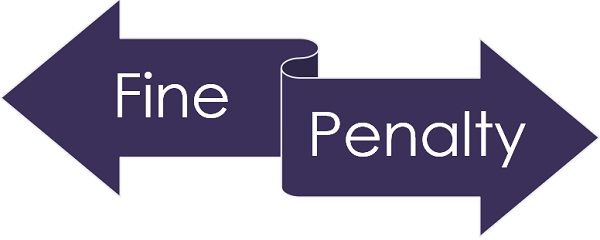Understanding Offences and Penalties: A Comprehensive Guide
In the realm of legal frameworks, offences and penalties play a pivotal role in maintaining order and ensuring adherence to societal norms. This article aims to provide a thorough exploration of what constitutes offences, the types of penalties associated with them, and the significance of this interplay within the broader legal system.
Defining Offences: Unraveling the Legal Tapestry
Offences, in a legal context, refer to actions or behaviors that violate established laws and regulations. These breaches are typically categorized based on the severity of the transgression and the potential harm caused. Offences can span a wide spectrum, ranging from minor infractions such as traffic violations to more serious crimes like fraud, assault, or theft.

In many jurisdictions, offences are classified into two main categories: criminal offences and civil offences. Criminal offences involve actions that are deemed harmful to society as a whole, and they are usually prosecuted by the state. On the other hand, civil offences, also known as civil wrongs or torts, involve disputes between private parties, and the aim is often to compensate the victim rather than punish the wrongdoer.
The Classification of Offences
Offences can be further classified based on the nature and severity of the act. Common classifications include:
Felonies and Misdemeanors
Felonies are serious crimes that are typically punishable by imprisonment for more than a year, while misdemeanors are less severe crimes with shorter sentences.
Personal and Property Offences
Offences against a person, such as assault or homicide, fall under personal offences, while offences against property include crimes like burglary or vandalism.

White-Collar and Blue-Collar Offences
White-collar offences involve non-violent crimes committed by individuals, businesses, or government professionals, often in a financial context. Blue-collar offences, on the other hand, typically involve physical force or threat of force.
Understanding Penalties: Navigating the Legal Consequences
Penalties serve as the legal consequences imposed upon individuals or entities found guilty of committing offences. The primary objectives of penalties are deterrence, punishment, rehabilitation, and protection of society. The severity of penalties is often aligned with the gravity of the offence committed.
Types of Penalties
Monetary Penalties
Fines are a common form of monetary penalty, requiring the offender to pay a specified amount as punishment for their actions.
Imprisonment
For more serious offences, imprisonment may be imposed, removing the offender from society for a designated period.
Probation
Probation allows offenders to remain in the community under specific conditions, monitored by probation officers.
Community Service
Offenders may be required to contribute a certain number of hours to community service as a way to give back to society.
The Significance of Offences and Penalties in the Legal System
The existence of a well-defined system of offences and penalties is crucial for maintaining order and promoting justice within a society. This structured approach serves several key purposes:
Deterrence
The threat of penalties serves as a deterrent, discouraging individuals from engaging in unlawful activities.
Rehabilitation
Penalties such as probation aim to rehabilitate offenders, providing them with an opportunity to reintegrate into society.
Restitution
Penalties may include restitution to victims, ensuring they are compensated for any harm or losses suffered.
Protection of Society
Imprisonment and other forms of incapacitation protect society from individuals who pose a threat to the safety and well-being of others.
Conclusion: Balancing Justice and Fairness
In conclusion, offences and penalties form the backbone of any legal system, providing a framework for addressing transgressions and maintaining societal order. Understanding the classifications of offences and the various types of penalties helps ensure a fair and just legal process. Striking the right balance between deterrence, punishment, rehabilitation, and protection of society is essential for a legal system to effectively serve its purpose.
As society evolves, legal systems must adapt to address new challenges and complexities, continually refining the interplay between offences and penalties to uphold the principles of justice and fairness.
By delving into the intricacies of offences and penalties, individuals gain a deeper appreciation for the complexities of the legal landscape, fostering a collective commitment to a just and orderly society.





